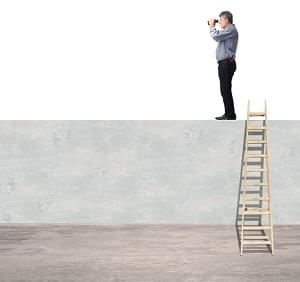
It is said that a week is a long time in politics.
Well, that saying seems to apply to just about everything right now!
If the lock down (only!) lasts a few weeks, then my guess is that most of us will be tempted to get back to ‘business as usual’ as quickly as we can.
But is ‘business as usual’ the place we really want to get back to?
As Stephen Covey said, “If the ladder is not leaning against the right wall, every step we take just gets us to the wrong place faster.”
The longer this situation goes on the more likely it becomes that real change for the better could happen.
For instance, I think that significant numbers of people might begin to question that there’s more to life than making it go continually faster.
Where is it exactly that we trying to get to in such a hurry anyway?
Despite us humans having the largest brain in the animal kingdom, we have a huge issue with mental health in society. The World Health Organisation published that 1 in 4 people will suffer mental health problems in their lives with 450 million at any one time.
Also, millions of ‘high-functioning’ people who do not fall into the category of having a medically diagnosed mental health disorder are stressed out and in many cases self-medicating (such as with alcohol).
Why is this number so high?
We collectively misbelieve that happiness, contentment and inner peace come from sources that they cannot.
Money is a classic example, but far from the only one.
Money is a useful tool, but it cannot make you happy either in itself or through what you can do with it. Giving it these mystical powers is just superstitious thinking.
Feelings and emotions do not exist outside of us and somehow make their way into us. Although we think and behave as though as this were true.
Happiness, contentment and inner peace are innate qualities that are only ever obscured when we get caught up in lots of thinking (an almost permanent state for many people).
I was speaking with a client today who owns a successful business. He was saying that despite the significant challenges of the situation he also sees it as a gift. To spend more time with his kids, look after himself better and lead a more balanced life.
This is what happens when our thinking slows down. We get more perspective and make better choices.
Do we really need a virus to wake us up? Isn’t the opportunity always there?
Right now, we want to be useful to people and offer what help we can.
But as time goes on the opportunity for new conversations with your clients will open up and it will be fascinating to see what has changed.
It’s also useful to reflect on your own life.
What do you see differently, if anything?
Has the situation brought into sharper focus what is really important to you?
What is the potential for change?
What changes are you committed to making?


